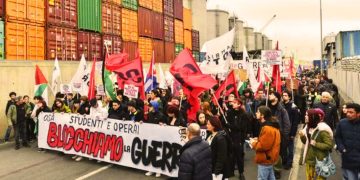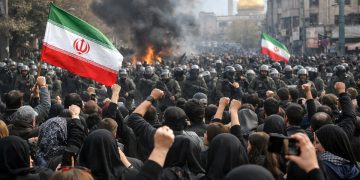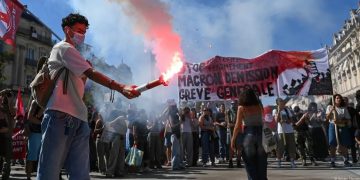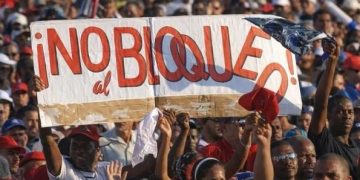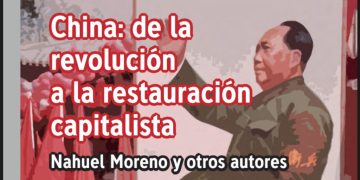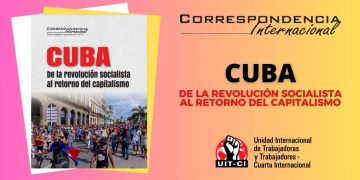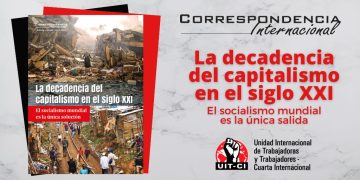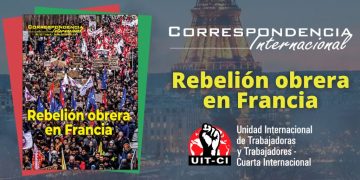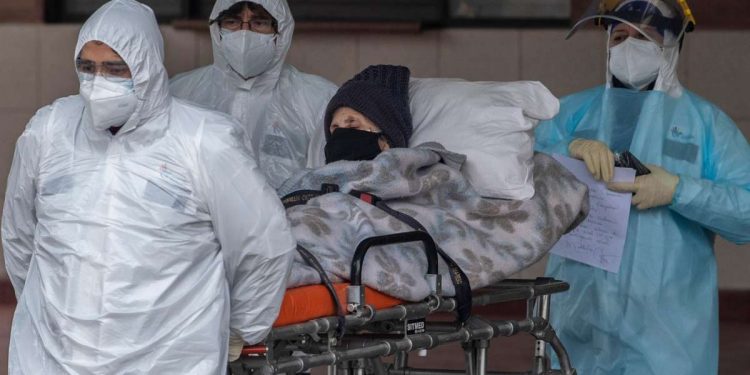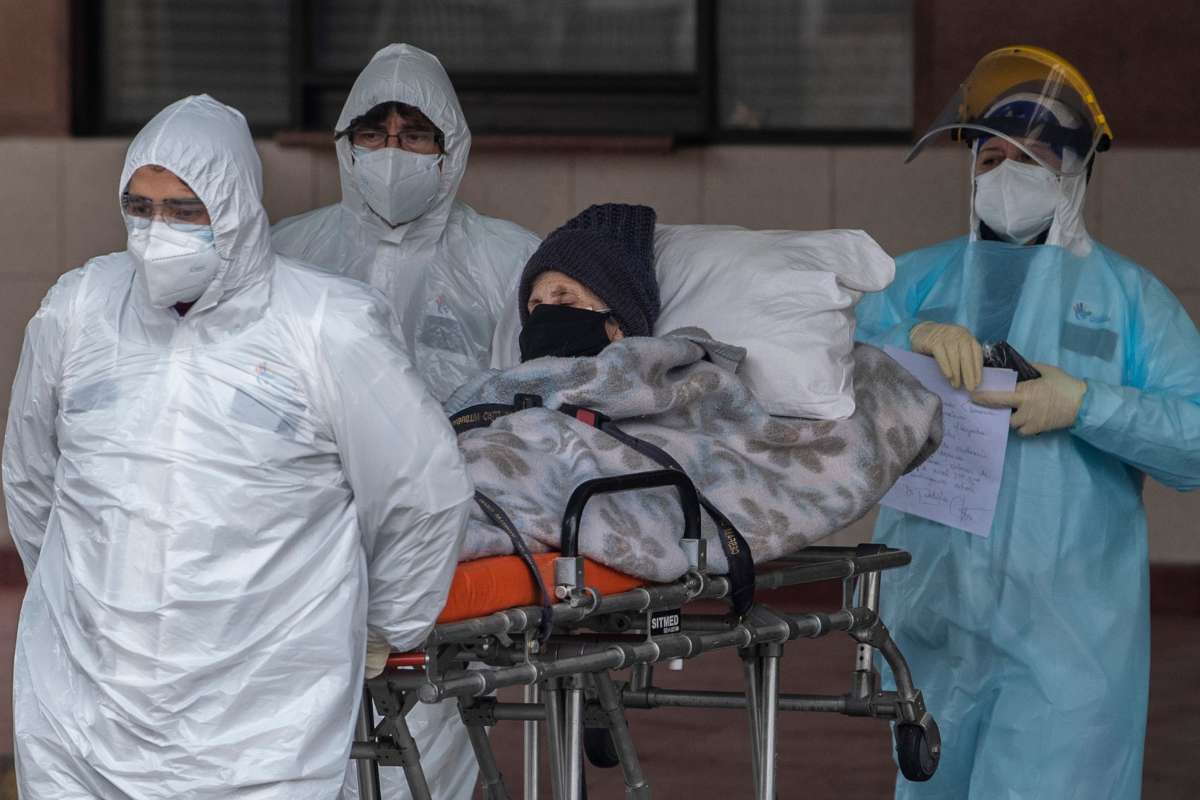 By Miguel Sorans, in International Correspondence N°45, July 6, 2020
By Miguel Sorans, in International Correspondence N°45, July 6, 2020
Everything that can be written about the impact of the crisis experienced by the world since the emergence of the Covid-19 pandemic is never enough. It is unprecedented and will remain so in history. To make matters worse, at the time of closing this note, the pandemic has not ended nor does it appear to have an end in sight. The coronavirus has opened all kinds of debates, especially about what the future of humanity will be. Three issues are certain: 1) Capitalism is experiencing the worst economic crisis in its history. 2) Multinationals want to save their losses at the expense of the working class. 3) Those most affected by Covid-19, and who will suffer the consequences the worst, are the peoples of the world.
Everything written today must have its date of the issue because, day by day, the numbers of the pandemic are left behind. Our first article was on 14 February. Back then there were 60,000 infections in China and it was just beginning to spread to other countries.
In the first week of March, 110,000 infected and 3,800 deaths were reported worldwide. At the time of writing this note, in early July, there were over 10 million cases of coronavirus and 500,000 deaths. And the World Health Organisation (WHO) confirmed that the end of the pandemic would not be near. The United States is the country most affected, with 2.5 million cases and 125,000 deaths. The second is Brazil, with 1.3 million and more than 60,000 deaths. It extends through Mexico and South America. In India, there were 500,000 infections. Japan and South Korea reported fresh outbreaks. In China, restrictive measures were reintroduced in response to the advance of the virus in Beijing.
Why is it taking so long to end the pandemic? Why are there fresh outbreaks where it seemed to be overcome?
There is a combination of causes. First, science does not yet know how to combat it. Not only because of the novelty and changing nature of the virus but also because epidemiological research by governments and private institutions is conditioned by profits. The vaccine is not delayed because of lack of global scientific coordination but because of a fight between private laboratories, endorsed by their governments, to see who gets the business.
But there are also other causes related to the criminal and irresponsible actions of capitalist governments and their multinationals. And this is not a rhetorical phrase. From coronavirus deniers, such as Trump and Bolsonaro, to the European Union and China itself, through all capitalist governments, with their unevenness, they all operate under the logic of capitalist profit. None puts the financial resources possible to combat the pandemic. Governments were destroying state public health systems to favour private health and now they do not put enough money to recover them. To improve wages, protect health workers, for more respirators and test kits. They do not put the money necessary to cover the needs of the workers who do not carry out essential tasks, of the small merchants or self-employed tradesmen, or for the billions of unemployed or casual workers. “Aid” is mostly to save companies. This is why quarantines are carried out halfway, or directly are not implemented, as Trump and Bolsonaro do. For them “the economy” is first. For this reason, pressure from multinational companies, entrepreneurs and banks to resume activities has prevailed in all countries, leading to billions of people to move around again. In Europe, everything opens to favour tourism and the bosses in this field, with the risk of causing new infections.
What world are we going to?
Amid the Covid-19 tragedy, the world to come is also debated. Economists, commentators, and politicians express their view and write on everything.
A leading global figure said there is a need to “gear up for a more inclusive recovery” (…) “scaling up public investment in health care to protect the most vulnerable and minimise the risks from future epidemics” to lead to a “greener, smarter and fairer world in the future”. Unusually, this was stated by Kristalina Georgieva, the head of the IMF, during her participation in a videoconference that she held with Prince Charles of Wales, at the launch of the initiative The Great Reset (3 June 2020, Telam, Argentina). Such is the crisis of the system that their bosses already say anything to cover up the disaster they have caused. On top of that, the head of world austerity measures says we are going to “a greener” and “fairer world”.
An editorial in the British newspaper Financial Times stated: “Redistribution will be on the agenda again… radical reforms are required to forge a society that works for all” (quoted by BAE Negocios, 5 April 2020). The President of Argentina, Alberto Fernandez, said that “capitalism that is not fairer is not a good capitalism” and proposed going towards “capitalism where everyone wins” (Telam, 4 June 2020).
Beyond the striking coincidence between the head of the IMF, the Financial Times and the Peronist Alberto Fernandez, to ask for “fairer” capitalism, such a project is a “double discourse”, in other words, simple lies. There is no possibility of “progressive” reform or restructuring of capitalism. The capitalist-imperialist system is unfair, irrational and for the rich. Its raison d’être is based on exploiting the working class and plundering the peoples and their wealth for super-profits. The growth of poverty, overcrowding and environmental changes was the propitious terrain for the emergence and development of Covid-19.
For example, they tell us to wash our hands and there are 2.1 billion people in the world who do not have access to clean water. This is capitalism. Before the coronavirus, 1.3 billion people were already in poverty, 172 million without jobs and 1.4 billion with casual jobs. And now the ILO report announced that 480 million jobs were lost in the second quarter of the year (Clarin, 1 July 2020). In turn, the head of the IMF announced there will be 300 million new unemployed after the pandemic. A catastrophe. Nothing to do with the “greener” and “fairer world” she spoke of in her press conference.
Unfortunately, we are going to a worse world for the working class and the popular sectors. We are already transiting it. The great problem for humanity is that, amid the pandemic, imperialism, multinationals and their governments are deepening their austerity plans. They want to charge the people for the coronavirus crisis, closing companies, massively firing and cutting wages.
Therefore, for the revolutionary socialists, the task of fighting to end the capitalist-imperialist system remains posed. There will be a just world by imposing workers’ governments that start the construction of a socialist society.
The most serious capitalist economic crisis in history
All the data shows that capitalism is experiencing its most acute crisis. Superior to all known. There are already coincidences, even among bourgeois economists, that it is worse than the famous crisis of 1929, and also than the most recent one of 2007–2008.
“At the end of 2021, the loss of income will exceed that of any previous recession in the last 100 years outside wartime, with dire and lasting consequences for people, companies and governments”, said Laurence Boone, of the Organisation for Economic Cooperation and Development (OECD) (Clarín, Argentina, 11 June 2020).
The speakers for imperialism and the multinationals attribute the crisis to the appearance of the pandemic. They want to hide their debacle and responsibility. But the world capitalist economic crisis already came from before. The coronavirus added more fuel to the fire and caused it to deepen to unprecedented levels.
At the end of 2019, only the US had grown, but very slightly. “Since 2009, US per capita GDP annual growth has averaged just 1.6 per cent. So at the end of 2019, per capita GDP was 13 per cent below trend growth prior to 2008. That gap was now equal to $ 10,200 per person —a permanent loss of income.” (Michael Roberts, “The scarring”, 2 May 2020, https://thenextrecession.wordpress.com/2020/05/02/thescarring/) Europe was on the brink of recession, Latin America was stagnant. China grew 6.2 per cent, the lowest figure since 1992, when recently it had been growing at between 12 per cent and 14 per cent annually. Capitalism could never recover from the acute economic crisis that opened in 2007. It is debated whether it was equal to or greater than the one of 1929.
Never in human history have there been such high levels of indebtedness. In absolute terms, global debt reached US$ 253 trillion in the last quarter of 2019, equivalent to 322 per cent of world GDP. The crisis has been going on for 12 years. Bourgeois economist Larry Summers defined it as “secular stagnation”.
Now both the IMF and OECD are forecasting the world economy will collapse in 2020. According to the OECD, the recession will be 7.6 per cent. The IMF assured that “for the first time all regions are projected to experience negative growth in 2020.” (Clarin, 25 June 2020). Europe would drop 10.7 per cent, the US 8 per cent, Latin America and the Caribbean 9.4 per cent and China would only grow 1 per cent.
The consequence of this debacle is the wave of massive layoffs, suspensions, wage cuts and the growth of levels of poverty and hunger in the world.
The masses take centrestage to face the crisis
The important thing is that the mobilisations and strikes against this attack by multinationals and capitalist governments are beginning to resume. The 2019 wave of struggles suffered an impasse in the first months of the pandemic. But the fear of contagion is beginning to lessen in the face of the tremendous attack against the working class and the peoples. The struggles take place to demand security measures against the coronavirus, for the demands of health workers, and against layoffs, wage cuts or company closings. Also against repression and racism with the massive mobilisations that sparked a worldwide rebellion in the United States. In Lebanon, they again marched against hunger. In Hong Kong, for democratic rights. The health sector made protests and strikes in France, the Spanish State, Italy, Tunisia, Venezuela, Brazil, Argentina, Bolivia, Peru, Panama, among others. There were major union strikes demanding security, for example, in the USA and northern Italy. Thousands mobilised in Paris against the Renault layoffs.
There was an indefinite strike at Nissan Barcelona in the face of its closure. A one-day strike by Italian metalworkers against layoffs at the Mittal steel multinational. Big protests in popular neighbourhoods of Santiago Chile for food. Cacerolazos (pots and pans rattling) and mobilisations for “out with Bolsonaro” in Brazil. In Argentina, there were company strikes against dismissals and stoppages in public transport because of unpaid wages. Even on Curaçao, the Dutch island in the Caribbean, there were street protests over mass layoffs.
We are confident this process of mass layoffs and wage cuts will increase the worker and popular mobilisation that will question the austerity measures and also the governments applying them. Every day it becomes clearer that to face the current coronavirus crisis, just like the one that will come after the pandemic, we need to advance in unified actions at the international level.
From the IWU–FI we promote these struggles by demanding the coronavirus crisis be paid by capitalists. We propose to fight for a workers’ and popular emergency plan in each country and internationally. Throughout the world, money is needed for health, wages, jobs and food. For high progressive taxes on multinationals, big businessmen, landowners and banks, for the nonpayment of foreign debts and against all forms of repression and for the right to protest. The coronavirus pandemic is not over.








